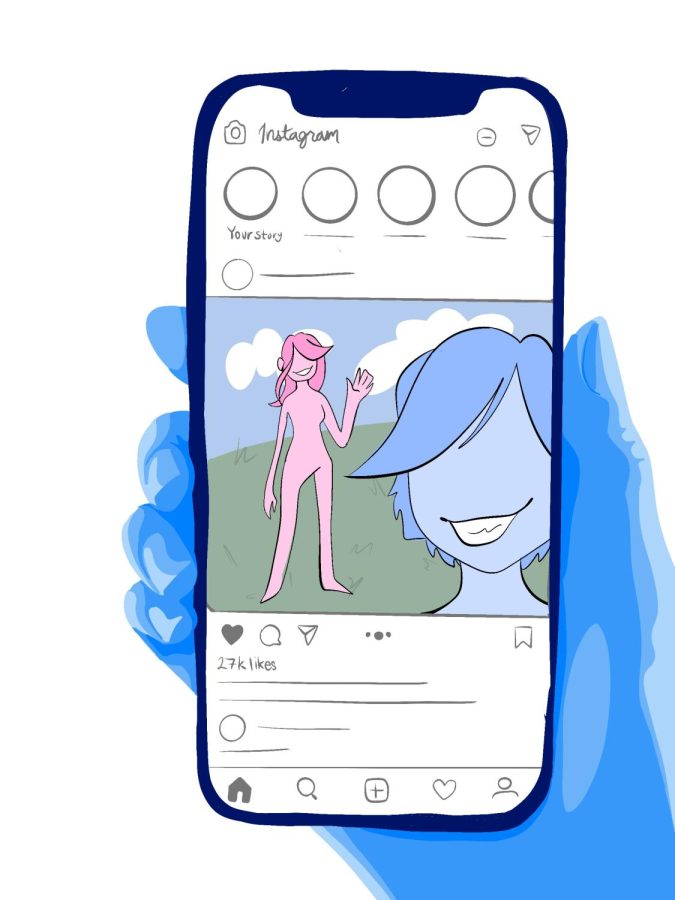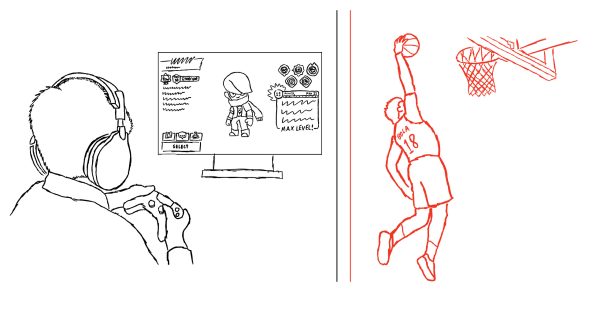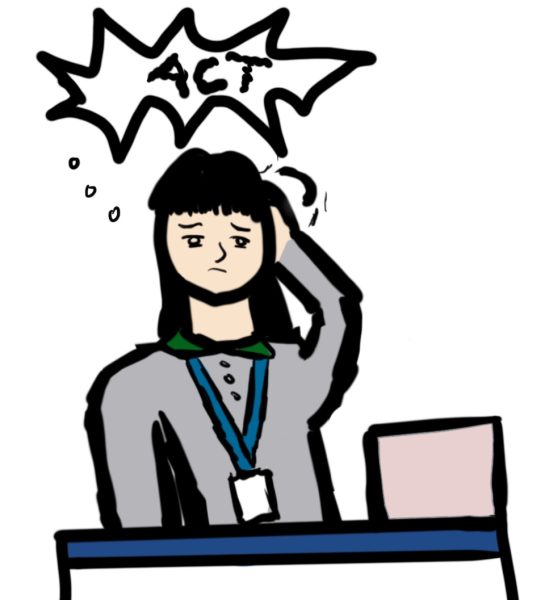Beauty is only screen-deep
Social media kills confidence, altars perception of reality
You’ve all heard the saying: “Beauty is only skin deep.” While I agree that one’s personal qualities vastly outweigh their physical ones, it is hard to look through society and claim that beauty does not run the world. As humans, we are attracted to things we find visually appealing, and it is difficult to train one’s mind to feel simply indifferent about the way we are perceived by others. This fixation on outward appearance has never been so prevalent than in the current social media age.
Our minds are shaped by the media we consume. Since its creation, mass media has had a direct and significant hand on the pulse of the beauty standards and trend cycles within a given region. However, this grip on culture has multiplied tenfold with the addition of social media apps like Instagram, Snapchat and Facebook. With this in mind, it is important to recognize the impact of social media on the mental health of adolescents, as well as to break down the unrealistic and harmful expectations that we place on ourselves because of it.
According to a study from the National Institute on Media and the Family, 53 percent of 13-year-old girls reported dissatisfaction with their physical appearance, and this rate shot to 78 percent by age 17. With this in mind, it is no surprise that as many as one in ten college-aged women suffer from near-clinical eating disorders. While the unattainable and unescapable beauty standard is nothing new for most women, the constant stream of content available with social media only accelerates this internal dilemma. It is hard to feel confident when we are surrounded by media which presents beauty in a binary and restricting way. Also, our society’s immersion in the digital world creates a distinct barrier between the truth and a facade.
In April 2021, Snapchat had over 530 million active users. The app, focusing on user retention with features such as incentives for daily engagement and personally curated content, has found its way at the forefront of social media, particularly for teens and young adults. While undoubtedly a smart business model, the app has instilled negative perceptions of self-image within many users. In extreme cases, some users have gone so far as to have plastic surgery in order to look more like Snapchat’s available filters, in cases regarded by some surgeons as “selfie dysmorphia.” On a smaller scale, the constant stream of photo messages creates the notion that people must look “presentable” at all times, which greatly alters our self-perception.
Similarly, Instagram, in its current state, has largely become a site for aspiration. Users strive to perfectly curate an image of your life which highlights all of the good qualities and erases the bad. The ultimate goal here is to commodify oneself; to transform our lives into a product to be sold to those who view it.
“Through the emergence of blogging, personal lives were becoming public domain, and social incentives—to be liked, to be seen—were becoming economic ones,” wrote author Jia Tolentino in her 2019 essay “The I in Internet.”
The modern fixation on constant aesthetic optimization highlights one glaring quality: In one way or another, we all view ourselves as influencers. Whether we are monetizing our content to large audiences or posting for a small circle of peers, we are constantly looking for ways to perform–and do so perfectly. Despite how we may portray ourselves to the world, the truth beneath a post is often much different than the end result.
This goal of perfection is largely ironic, because the idea is not to truly be perfect, but simply to appear to be so. Since the pandemic’s peak, there has been a shift in cosmetic advertising to emphasize “natural beauty.” In June 2021, luxury powerhouse Chanel launched its “Effortless Beauty” campaign, which aimed to focus on creativity rather than aesthetic perfection. Similarly, fan-favorite “Glossier” utilizes youthful and clean products and packaging as well as a large focus on accessibility. While the newfound focus on diversity is undoubtedly a huge step in the beauty world, these brands still push unrealistic beauty standards, promoting the idea that beauty can only exist in the forms of acne-free skin, sleek straight hair and a poreless appearance.
As humans, we should not have to be constantly curating our lives in perfectly saturated and artistically-shot snapshots. Social media changes the way we view ourselves and creates insecurities out of even the smallest of features. We have lost sight of what it means to engage with others in a meaningful way, and we must in turn practice kindness and empathy, not only to others in our lives, but to ourselves. This means grounding ourselves when we feel the urge to self-deprecate, and trade critical remarks about the appearances of others for affirming ones. We need not feel pressure to look perfect all of the time. Above all, we must remember that social media is not reality, but merely a loose depiction of it.
Your donation will support the student journalists of Saint Viator High School. Your contribution will allow us to purchase equipment and cover our annual website hosting costs.








